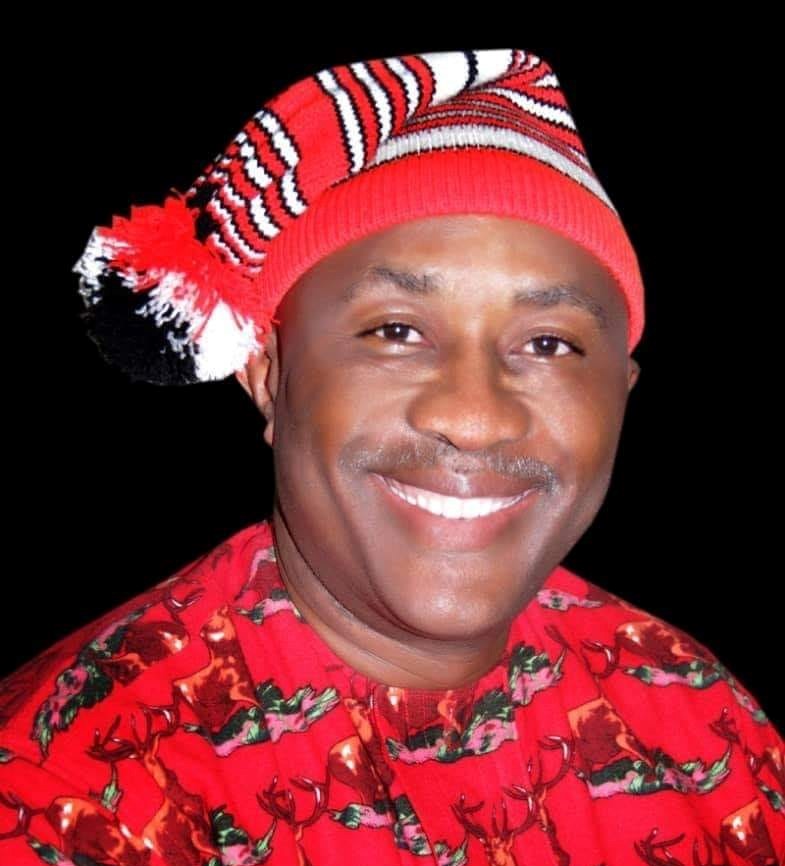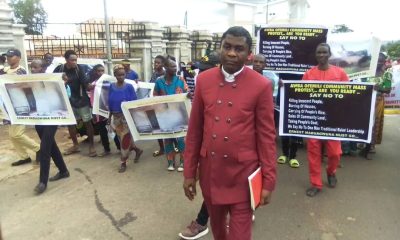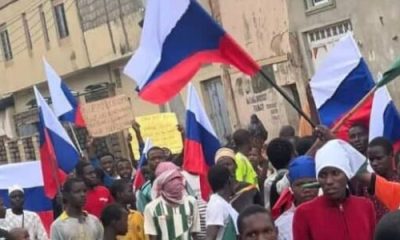OPINION
Right Of Reply: Ndigbo Opposed The #EndBadGovernance Protests

By Uche Onyeagucha*
My attention has been drawn to numerous articles claiming that Ndigbo oppose and do not support the current national protests in Nigeria against bad governance and hunger. This viewpoint is incorrect and tainted with ignorance. Ndigbo supports the ongoing national protests. Ndigbo, more than any other ethnic group in Nigeria, oppose bad governance. The Ndigbo are a politically active ethnic group in Nigeria. Look at the records. Ndigbo has five states in the South East zone. Abia is affiliated with the Labour Party. Anambra is APGA, Ebonyi is APC, Enugu is PDP, and Imo is APC. No other zone is as politically active as the South East. This indicates that Ndigbo faces greater challenges in holding elections in the South East than in any other zone in Nigeria. This record is unique to this Zone. Most zones are already one-party zones. Most zones have not had an election since 1999.
Ndigbo has demonstrated a tremendous capacity for resistance in Nigeria, at least in recent times. Here’s the record. Buhari, as Nigeria’s military or civilian leader, disliked Ndigbo. In his Supreme Military Council from 1984 to 1985, no Igbo were accommodated. He did not conceal his dislike for Ndigbo. In return, Ndigbo denied him votes in 2003, 2007, 2011, and 2014. As President, Buhari refused to make peace with the Ndigbo. To balance their mutual dislike, Ndigbo refused to vote for Buhari in his second term bid in 2019. No other ethnic group in Nigeria has fought a sitting president as hard as the Ndigbo. To cap off the resistance, Ndigbo voted against Buhari’s candidature and party in the 2023 elections. Ndigbo is never afraid to resist. Ndigbo were subjected to Direct Rule during Colonial Rule. Ndigbo made significant contributions to the struggle against colonial rule. According to records, the British resented the Igbo opposition greatly. When NPC ruled Nigeria, Ndigbo supported the NCNC. When Gowon and his military gang committed genocide against the South East, Ndigbo fought back for three years. From 1979 to 1983, when the NPN ruled Nigeria, Ndigbo voted for the NPP. When the South West voted against Obasanjo in 1999 in favour of Olu Falae, Ndigbo overwhelmingly supported Obasanjo. The records are there. Ndigbo has never shied away from opposing bad governance and oppression. Ndigbo naturally supports the ongoing protests in Nigeria against hunger and bad governance.
The only difference is that Ndigbo has been protesting bad government for longer than any other ethnic group in Nigeria. Ndigbo have developed a more civilised form of protest against bad governance and hunger in Nigeria. The model is called “SIT AT HOME.” Ndigbo have been protesting using the Sit-at-home model for over nine years, while the rest of Nigeria has looked the other way.
On August 1st, when the protests against bad government and hunger in Nigeria began, the five South East states observed a one-hundred percent sit-at-home protest.
The advantage of Sit at Home is that it protects people and property. It reveals the dictatorial government’s weakness and emptiness. It allows the protester to clearly reclaim the power granted or stolen by the government.
I urge the rest of Nigeria to follow suit and join the South East in adopting Sit at Home as a Nigerian National Model of Protest. It is excellent and effective when properly planned and executed.
I support the protests. The South East supports the national protests.
Ndigbo sat at home, protesting their absence from the roads, markets, businesses, offices, and worship centres.
We denied our detractors the ability to kill, wound, arrest, detain, or imprison us. We denied them the opportunity to destroy and loot our stores, shops, and establishments. On August 1st, Ndigbo detractors and oppressors joined the masses to support and celebrate Sit at Home, shouting that everything in the South East was calm, quiet, and peaceful. It was the peace of the graveyard. It represents the new model of protest in Igboland. This is the cool and lovely model for Igbo protests. The August 1st sit-in was a sweet victory for the genuine people and leaders of Ndigbo, as opposed to their detractors. Governors, Ministers, and National and State Assembly Members who opposed sit-at-home hailed it as a victory on August 1. No. It was vintage the mass of Ndigbo. *FORWARD WITH SIT AT HOME AS A MODEL FOR PROTESTS IN NIGERIA.*
- *Onyeagucha wrote from Umuagam Obinze.
-
CRIME3 years ago
PSC Dismisses DCP Abba Kyari, To Be Prosecuted Over Alleged $1.1m Fraud
-
FEATURED3 years ago
2022 Will Brighten Possibility Of Osinbajo Presidency, Says TPP
-
FEATURED2 years ago
Buhari’s Ministers, CEOs Should Be Held Accountable Along With Emefiele, Says Timi Frank
-
BUSINESS & ECONOMY2 years ago
Oyedemi Reigns As 2023’s Real Estate Humanitarian Of The Year
-
SPORTS1 year ago
BREAKING: Jürgen Klopp Quits Liverpool As Manager At End Of Season
-
SPORTS2 years ago
Could Liverpool Afford Kylian Mbappe For €200 million? Wages, Transfer Fee
-
ENTERTAINMENT2 years ago
Veteran Nigerian Musician, Basil Akalonu Dies At 72
-
FEATURED2 years ago
Tribunal Judgement: Peter Obi Warns Of Vanishing Electoral Jurisprudence, Heads To Supreme Court
-
BUSINESS & ECONOMY2 years ago
Oyedemi Bags ‘Next Bulls Award’ As BusinessDay Celebrates Top 25 CEOs/ Business Leaders
-
FEATURED3 years ago
2023 Presidency: South East PDP Aspirants Unite, Demand Party Ticket For Zone

































